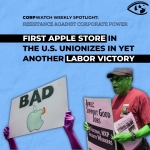US: Seated at Both Sides of the Table
To settle a $400 million debt he owes to himself, Carl Icahn wants to sell some prized possessions--to himself. Confused yet?
Carl Icahn has spent close to $1 billion buying up sickly telecom companies since the crash, folding them into XO Communications, the publicly held outfit he has controlled since 2003. Now XO has auctioned off those same networks for $700 million--to Carl Icahn himself.
XO will use Icahn's cash to pay off its $400 million in long-term debt--virtually all of which is held by...one Carl Icahn. XO had been struggling to meet those debt obligations; Icahn now gets his loans repaid in full. After XO sheds its revenue-generating wireline business, it plans on building a new type of wireless network in 70 U.S. cities. No downside for Icahn there, either: He will still own 61% of the debt-free, wireless-focused company.
It's a nifty deal for Icahn, who made a brazen bet in an abused and abandoned sector at a time when almost no one else would. But XO's minority shareholders are furious, pointing to a 23% fall in the stock in the week after the $700 million sale was announced, and have filed three lawsuits to block the plan. Collectively controlling almost all the non-Icahn shares in XO, they complain they had no say in the deal and insist the $700 million price is too low by roughly half. One investor flatly suggests Icahn rigged the whole thing, running an asset auction in which he magically emerged as the top bidder. Some darkly ask whether he led XO into trouble to get himself a better deal.
"It is inescapable that he used his dual position as debt holder and the guy who runs the company in a way that favors himself," says Andrew Bogen, an attorney for shareholder R² Investments, which has filed suit in Delaware Chancery Court. "We think Carl Icahn made all the important decisions about who was permitted to bid--and that he had full information on other bids when he made his."
"That stuff is patently absurd," scoffs Icahn in an interview. He says the $700 million is simply more than anyone else would pay. XO's lawyer Bruce Kraus adds that the company tried hard to gin up other interest, contacting 89 potential buyers, 30 of whom signed confidentiality agreements to examine the assets for sale.
The rash of shareholder suits comes at an awkward time for Icahn, who has been huffing and puffing a lot lately in the press about misdeeds at Time Warner, likening board "cronies" to "totalitarian regimes" and lamenting "the absence of real corporate democracy" in the U.S. Insert irony here.
XO has stung investors for much of its existence. Craig McCaw founded XO's predecessor, NextLink, in 1994, building fiber and wireless nets to compete with local telcos. Then came the travails in the telecom glut and tech bubble. Once valued at $17 billion as the market peaked in March 2000, stockholders saw that disappear after XO filed for Chapter 11 protection from creditors in June 2002. Buyout firm Forstmann Little lost $1.5 bllion
In came Icahn to pick up the pieces as XO emerged from Chapter 11 in January 2003. A year later he had XO acquire its largest direct rival, Allegiance Telecom, out of bankruptcy for $500 million. Then in November XO unveiled plans to sell its wired networks. It said an auction had been conducted as part of an open bidding process "created by XO's board." It said the cash would be used to pay off all debt and fund its wireless business, a debt-free rump with virtually no sales.
In court Icahn, as controlling investor, bears the burden of proving the process was fair, says UCLA law professor Stephen Bainbridge. "When all you have is approval by a board committee, that is mere evidence of fairness, it is not conclusive."
- 180 Media & Entertainment


